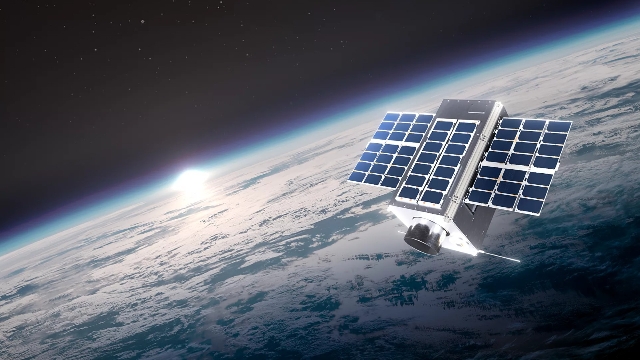National Space Science Policy launched in Ghana
 An image of outer space
An image of outer space
To utilise space technology for national advancement, Ghana has launched a landmark Space Science Policy.
The Minister of Environment, Science, Technology and Innovation (MESTI), Mrs Ophelia Hayford, led the launch in Accra, noting the significance and the promise space technology held for various sectors when adopted and regulated.
“Let us leverage this policy to promote sustainable practices, drive technological advancement, foster international cooperation, and contribute significantly to the growth of space science in Ghana and across Africa,” she urged.
The Manager of Remote Sensing and Climate at MESTI, Dr Kofi Asare said: “Satellite technology allows us to track crop health, soil conditions, and weather patterns, making it a vital tool for agriculture and environmental management.”
“Space technology can help us manage resources, track agricultural health, and mitigate climate change,” the Director of the Ghana Space Science and Technology Institute, Dr Joseph Bremang Tandoh, remarked.
He added the policy would boost job creation and impact infrastructural development.
The Vice-Chancellor of the University of Energy and Natural Resources, Professor Elvis Asare-Bediako, revealed the university was soon going to introduce undergraduate and postgraduate programmes in space technology.
“We are ready and equipped with expertise to partner with the government to push the exploration of space technology to its appropriate height,” he noted.
The Space Science Policy was approved by Cabinet in March 2022 but was launched today, Thursday, November 7, 2024. It is aimed at coordinating Ghana’s space activities and facilitating the establishment of the Ghana Space Agency.
In 2011 Ghana joined eight African countries, including South Africa, for the Square Kilometre Array (SKA) project, with the aim of building the world’s largest radio telescope network.
NASA launched Ghana's first-ever satellite, the GhanaSat-1, into orbit from the International Space Station on July 7, 2017. The creation of a group of engineering students at the All Nations University College (ANUC), Koforidua, Eastern Region, the GhanaSat-1 being the first private university satellite developed in Sub-Saharan Africa.
Bearing low and high-resolution cameras, among other technology, the GhanaSat-1, a CubeSat satellite, was launched into space for exploration and research purposes, measuring atmospheric density and aiding mapping by monitoring the country's coastline.
Trending News

TOR boost operations with new fleets acquired from IGF
22:17
Our youth now idolising coup makers because of corrupt politicians – Agyinasare warns
11:31
Government vows to seek justice for student killed in Latvia – Ablakwa
11:08
Fiifi Kwetey’s ‘sycophancy’ in Mahama's third term could divide NDC- GFL Secretary General warns
21:59
3 suspects linked to robberies in Afienya and surrounding communities arrested, firearms recovered
12:32
John Boadu visits Kwabena Agyepong, Prof Mike Oquaye as part of his unity tour
11:58
Police take over Immigration Officer in 2,600 AK-47 ammunition trafficking probe
20:26
‘Make those who swallowed our riches vomit it’ – Agyinasare charges Mahama gov’t, says ‘not many’ve been tried, jailed yet’
11:16
GA/R: Police arrest 2 women over alleged assault of 12-year-old girl at La Roman JHS area
20:32
Police bust suspected illegal arms deal, recover CZ rifle
23:12



